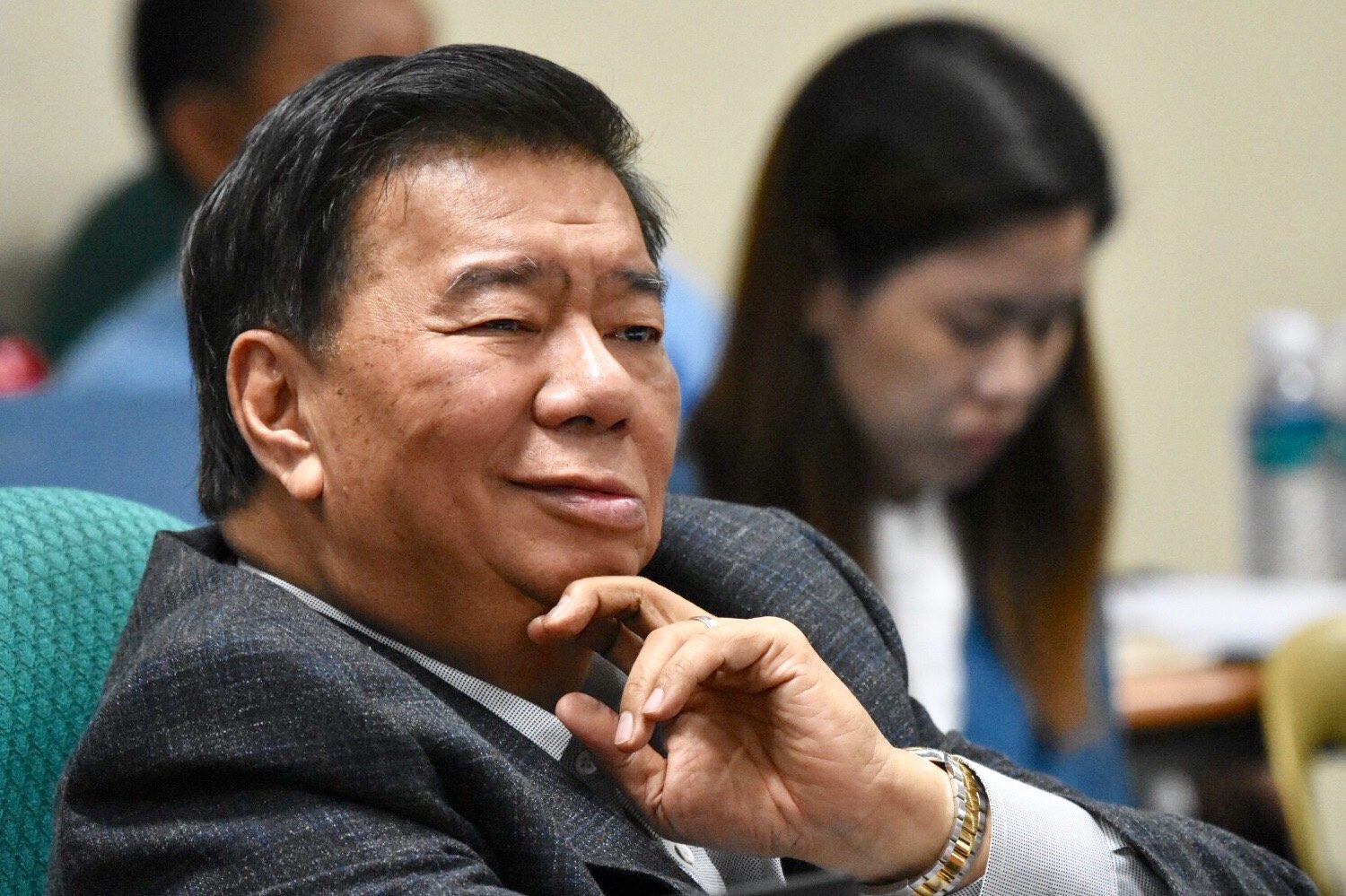SUMMARY
This is AI generated summarization, which may have errors. For context, always refer to the full article.

MANILA, Philippines – Senate Minority Leader Franklin Drilon consistently pushed for an anti-dynasty provision in the proposed Bangsamoro Basic Law, yet when other lawmakers pushed for its deletion, he deliberately didn’t defend it.
On Monday, July 9, during the first day of the closed-door deliberations, members of the bicameral conference committee strongly rejected the provision, which is present only in the Senate version or Senate Bill 1717.
Drilon said he did not argue anymore “as a form of protest.”
After all, the said line is “useless” and weaker than what is stated in Republic Act 10742, or the Sangguniang Kabataan reform law. For him, it would not reduce dynastic behaviors because it is “toothless.”
“The adoption of the supposed Anti-dynasty provision in the Senate version was strongly opposed by some members of the panel. As a form of protest, I did not argue and push for its adoption anymore because the provision, as crafted, is useless. It is a much weaker provision than that provided in the SK law. Such provision will not really curb dynastic behaviors,” Drilon said in a text message to reporters.
“In fact, it is a hypocritical provision, toothless to address the ill effects of dynasties. We might as well do away with it,” Drilon added.
RA 10742 prohibits relatives of elected or appointed officials up to the 2nd level of consanguinity from pursuing SK posts. Lawmakers noted that this is the first provision of its kind to be approved in the country.
Section 15 of SB 1717, meanwhile, covers party representatives only and not other members of parliament or other Bangsamoro officials: “No Party Representative should be related within the second (2nd) civil degree of consanguinity or affinity to a District Representative or another Party Representative in the same Parliament.”
The joint panel believed that such line is “selective, discriminatory and ineffective,” according to panel member Senator Francis Escudero.
Instead of a provision in the bill, Drilon said a strong regulation of political dynasties applicable to all public officials should be passed.
“What we need is a strong regulation of dynasties applicable to all public officers. I already signed a committee report regulating it,” Drilon said.
The Bangsamoro Transition Commission (BTC), some members of which belong to political families, have strongly opposed the anti-dynasty provision.
In a previous Senate hearing, members of the BTC said it is another “experiment” in the region. They said it is a “clear violation of equal protection clause” or the right of every person to vote and be voted.
But Ateneo School of Government Dean Ronald Mendoza had said there is a need for an anti-dynasty provision in the draft BBL or else the Bangsamoro state would be another failure just like the Autonomous Region in Muslim Mindanao, which it seeks to replace.
Once the bicam is done reconciling the differing provisions of the versions of the House of Representatives and the Senate, both chambers would have to separately ratify the measure. They plan to do it when the Third Regular Session opens on July 23, before President Rodrigo Duterte delivers his third State of the Nation Address. – Rappler.com
Add a comment
How does this make you feel?
There are no comments yet. Add your comment to start the conversation.